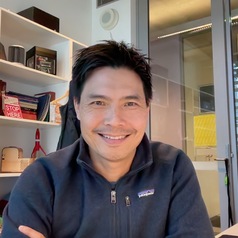
Nham Tran
Associate Professor and MTP Connect REDI Industry Fellow, University of Technology Sydney
Nham is both a teacher and a cancer researcher, specialising in small RNA biology and diagnostic technologies. He has dedicated his career to creating tools for diagnosing diseases. Nham earned his PhD from Johnson and Johnson and UNSW, where he focused on studying small RNA molecules and how they can be used in real-world applications.
During his postdoctoral training, Nham led a team that published the first study characterising microRNAs in head and neck cancers. This groundbreaking research led him to come up with the idea of using these microRNAs as markers to detect Head and Neck Cancers early on. He was also the first to understand the role of these molecules in salivary gland tumors and holds several patents in this area. Currently, he's leading a team of researchers who are studying the RNA aspects of oral cancers.
Aside from his work, Nham is an educator and served as the Deputy Head of School for Teaching (2019-2022). He teaches engineering students about molecular diagnostics, runs workshops on qPCR, and is involved in mentoring programs.
In his free time, Nham loves going rock climbing in the Blue Mountains with his family, exploring different parts of the world, writing awesome science papers, and building PCR machines.
Less ![]()

Nhlanhla Dube1
Postdoctoral Research Fellow, Department of English Literary Studies, University of Cape Town
Nhlanhla Dube is a native of Harare, Zimbabwe. He holds a PhD in English studies from Stellenbosch University. He is currently a postdoctoral research fellow in English literary studies at the University of Cape Town. His research interests are geocriticism, spatiality, literary Bulawayo and John Eppel. He has published peer reviewed papers on law and literature and literary pornography. You can follow him on Twitter @nhlanhladube09.
Less ![]()

Nhu Nguyen
PhD Ccandidate in Management, McGill University
I’m a PhD candidate in Management at McGill University. My research addresses gender inequality in two crucial areas: entrepreneurship and film-making. In entrepreneurship, I focus on uncovering the subtle biases that often go unnoticed in startup evaluations. Meanwhile, my work in film-making centers on identifying the key network structures that foster women's career longevity as movie directors. My research has been published in the prestigious 'Entrepreneurship Theory and Practice' journal and honoured with the Kauffman Foundation's Best Student Paper Award. Through my work, I hope to contribute to global efforts aimed at combating gender inequality and fostering an equitable and inclusive work environment for people of all genders.
Less ![]()
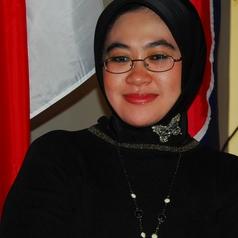
Nia Naelul Hasanah Ridwan
Maritime-Underwater Archaeologist and PhD Candidate on Archaeology (Humanities), Flinders University
PhD Candidate on Archaeology (Humanities) Flinders University.
Master of Social Science (Environment and Heritage), James Cook University. 2017
Bachelor (Archaeology), Gadjah Mada University, Indonesia. 2004
Maritime/Underwater Archaeology Researcher at the Ministry of Marine Affairs and Fisheries of Indonesia. 2005-Present
Less ![]()

Nial Wheate
Senior Lecturer in Pharmaceutics, University of Sydney
Dr Wheate completed a Bachelor of Science degree with 1st class honours from the University of New South Wales whilst at the Australian Defence Force Academy. He then completed a PhD in medicinal chemistry under Professor J. Grant Collins. Since then he has worked in the School of Biomedical and Health Sciences at the University of Western Sydney (Australia) and the Strathclyde Institute of Pharmacy and Biomedical Science (Scotland) before taking up a position in the Faculty of Pharmacy at the University of Sydney (Australia) in 2012.
Dr Wheate's research interests lie in whole-of-pipeline discovery and development of platinum-based anticancer drugs including: design and synthesis, in vitro and in vivo screening, drug-DNA binding, nanoparticle based delivery, solid state chemistry and co-crystals, toxicology and pharmacokinetics, and dosage formulation. Additionally, his research also examines the drug delivery application of macrocycles (including cyclodextrins, cucurbiturils and pillararenes) and their host-guest complexes.
Dr Wheate was previously the Head of Cancer Research in the Faculty of Pharmacy.
Less ![]()
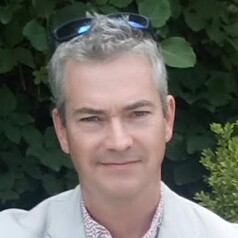
Niall Cunningham
Senior Lecturer in Quantitative Human Geography, Newcastle University
I am a social geographer based at Newcastle University. My work sits at the intersection of the disciplines of geography, history and sociology, with a focus on the geographies of class and race and tackling the conceptualisation, distribution and lived realities of inequalities between groups and individuals. Before coming to Newcastle in 2019 I was Assistant Professor in Human Geography at Durham University and between 2011 and 2015 I was Research Fellow in Quantitative Analyses of Social and Cultural Participation at CRESC: The ESRC Centre for Research on Socio-cultural Change at the University of Manchester. My first academic role was as Research Associate in History at Lancaster University in 2008. I am a UK state qualified secondary school teacher and taught in schools in the north of England and in Japan. I am also a Fellow of the Higher Education Academy.
Less ![]()
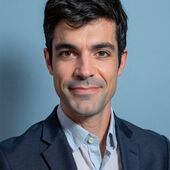
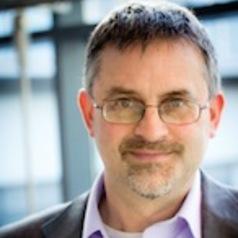
Niall Ó Dochartaigh
Professor of Political Science and Director of the MA Public Policy at the University of Galway. I have published extensively on the Northern Ireland conflict, on peace negotiations and on territorial conflict. Publications include 'Civil Rights to Armalites: Derry and the birth of the Irish Troubles' and the co-edited books 'Political Violence in Context' and 'Dynamics of Political Change in Ireland: Making and Breaking a Divided Island'. My most recent book, 'Deniable Contact: Back-channel Negotiation in Northern Ireland', provides the first full-length study of the secret negotiations and back-channels that were used in repeated efforts to end the Northern Ireland conflict. It won the 2022 Brian Farrell Book Prize of the Political Studies Association of Ireland, was shortlisted for the 27th Christopher Ewart-Biggs Literary Prize and was awarded a Special Commendation Prize in the National University of Ireland Historical Research Prize.
Less ![]()

Niall Richardson
Senior Lecturer, Gender and Media, University of Sussex
I've been teaching at the University of Sussex since 2007. Prior to that, I was a lecturer at the University of Sunderland.
I convene MA Gender and Media.
My research focuses on the representation of minority groups in film and media - especially how these identifications intersect with gender and sexuality politics. I have written about the representation of lesbians and gays, disability, transgender identifications and ageing.
Monographs:
2009 'The Queer Cinema of Derek Jarman: Critical and Cultural Readings' (I B Tauris)
2010 'Transgressive Bodies: Representations in Film and Popular Culture (Ashgate)
2018 'Ageing Femininity on Screen: The Older Woman in Contemporary Cinema' (I B Tauris)
2022 'Trans Representation in Contemporary Popular Cinema' (Routledge)
Edited Collections:
2011 'Critical Readings in Bodybuilding' (Routledge)
2013 'Film and Gender' (Routledge)
2020 'Cross Generational Relationships and Cinema' (Palgrave)
Textbooks:
2013 'Studying Sexualities: Theories, Representations, Cultures' (Palgrave)
2013 'Gender in the Media' (Palgrave)
2014 'Body Studies: The Basics' (Routledge)
Education
M.A (University of St. Andrews)
P.G.C.E (Queen's University Belfast)
M.A (University of Ulster)
PhD (University of Ulster)
Less ![]()
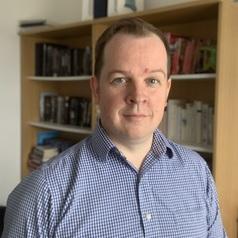
Niall G MacKenzie
Professor of Entrepreneurship and Business History, University of Glasgow
Professor Niall G MacKenzie FRSA is a three-time graduate of the University of Glasgow. He currently serves as the joint Editor in Chief of Business History.
Prior to re-joining the University, he worked at the universities of Cambridge, Wales and Strathclyde in the fields of entrepreneurship and innovation. To date he has raised over £10m in research income. His research interests are in the areas of business history, entrepreneurship, innovation, and regional development with a particular focus on Scotland and Scotch whisky.
Less ![]()
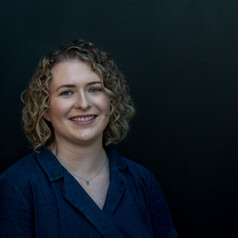
Niamh Chapman
Senior Research Fellow, Hypertension and Patient Engagement, University of Sydney
I am a blood pressure researcher that focuses on 'people and systems' to tackle the leading cause of death and disability in Australia and worldwide. I work closely with people from our communities who have lived experience of high blood pressure to develop educational and digital health tools to improve the management of high blood pressure. I am completed my PhD in 2021 at the university of Tasmania, for my PhD project I developed a health station that used a touchscreen app to control a blood pressure machine so that people could have their blood pressure measured while they waited for a blood test at pathology services.
In 2023 I moved to the University of Sydney where I am a Senior Research Fellow and co-lead Patient Engagement of the Australian Hypertension Taskforce which is endorsed by the Federal Minister for Health with the goal of improving blood pressure control from 32% to 70% by 2030. My current work is focused on empowering patients to navigate the management of high blood pressure through effective delivery of education in services people already use, like pharmacy.
Less ![]()
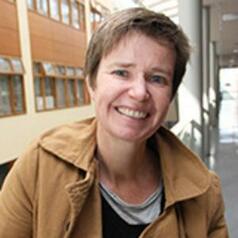
Niamh Gaynor
Associate Professor of International Development, Dublin City University
Niamh was appointed to DCU's School of Law and Government in 2009 where she is currently an Associate Professor of International Development.
She holds a PhD in Sociology from Maynooth University, and an MSc in Rural Development and a BSc (hons) in Botany and Mathematics, both from University College Dublin. She has worked with a number of development agencies and NGOs conducting field research and project evaluations in Africa and Central Europe.
Her research focuses on how social and political inequalities are produced and reproduced. Her work to date has focused on exploring the conditions under which more marginalised groups and communities wield political influence at local and national levels. She has conducted field research in a wide range of African countries (most recently, Burundi, DRC, Rwanda and Malawi), as well as in Ireland. Her recent book (2022), Engendering Democracy in Africa: Women, Politics and Development is published by Routledge and is freely available on Open Access here. She is currently (2022-2023) working on a co-edited book on the history of development education in Ireland. This is co-edited with Eilish Dillon (Maynooth University), Gerard McCann (Queen's University) and Stephen McCloskey (Centre for Global Education, Belfast).
Niamh also serves on the editorial board of Policy and Practice - a Development Education Review. She also regularly serves as a reviewer for a wide range of international journals and book publishers.
Research interests
The politics of development, participation and governance - in Africa and in Ireland; civil society and community; media and development.
Less ![]()
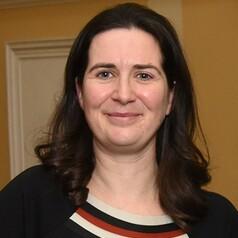
Niamh Humphries
Senior Lecturer, RCSI Graduate School of Healthcare Management, RCSI University of Medicine and Health Sciences
Niamh is a Senior Lecturer in the RCSI Graduate School of Healthcare Management. She has been researching health workforce issues for the past 17 years and currently leads a HRB-funded research project focused on hospital doctor retention and emigration.
Less ![]()

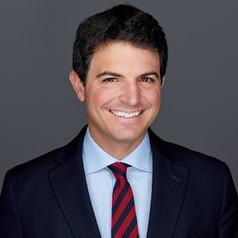
Niccolò Pisani
Professor of Strategy and International Business, International Institute for Management Development (IMD)
Niccolò Pisani is Professor of Strategy and International Business at IMD. His areas of expertise are strategic management and international business, with emphasis on globalization, sustainability and digitization. One of Niccolò’s key areas of interest is corporate social responsibility – his research in this stream has recently focused on inequality and sustainable cities.
Less ![]()

Niccolo Francesco Meriggi
Postdoctoral Research Fellow, University of Oxford
Niccolò is an applied microeconomist with a regional focus on Sub-Saharan Africa. His research sits at the intersection of academia, policymaking and practice. He primarily uses experimental methods to understand policy and governance challenges, and test solutions to overcome these challenges under political, institutional, technical and resources constraints. Implementing those projects has involved wide ranging collaboration with other scholars locally and internationally, significant international fundraising and developing skills in managing large and complex projects. He has lived in all of the countries where he has conducted research, including Sierra Leone, where he was based for nearly eight years and worked for the International Growth Center. Niccolò's research has been published in journals across disciplines, including the American Economic Review, the Journal of Development Economics, Nature, Science, and Science Advances.
Less ![]()

Nichol Castro
Assistant Professor of Communicative Disorders and Sciences, University at Buffalo
Prof. Castro’s research focuses on word retrieval in aging adults and adults with language impairments (e.g., aphasia, dementia), with a particular focus on how words are organized in memory. Her research uses behavioral studies and computational modeling
Less ![]()

Nichola D. Gutgold
Professor of Communication Arts and Sciences, Penn State
Nichola D. Gutgold is professor of communication at Penn State University, Lehigh Valley campus. She is author of a number of books and scholarly articles on women in politics including: Electing Madam President: When Women Run, Women Win; Gender and the American Presidency: Nine Presidential Women and the Barriers They Faced, co-authored with Diana Carlin and Theodore Sheckels.
Less ![]()
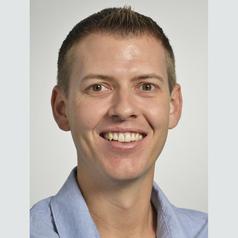
Nicholas Archer
Senior Research Scientist, Human Health, CSIRONicholas Archer joined CSIRO as a Post-doctoral fellow in 2012 after successfully completing his PhD at the University of Technology Sydney in human genetics and cell biology. He is currently a Senior Research Scientist working in the Human Health programs Diagnostic Group in Health and Biosecurity (since 2021) and previously with the Sensory and Consumer Science team in Agriculture and Food (2015-21). Nicholas has broad research interests that span the breadth of his research experience, including human physiology, genetics, nutrition, precision nutrition/medicine, human phenotyping, food and consumer science.
As a research scientist at CSIRO, Nicholas has designed, led and managed many small and large-scale, multidisciplinary, human studies evaluating flavour perception, food preferences, eating behaviour, personalised nutrition, satiety, flavour release and determinants of obesity. A focus of these studies included the development of novel phenotyping methods, the collection of diverse range of clinical samples and analysis techniques (e.g. RNA-seq, real-time PCR, SNP genotyping), and the integration of digital technologies. Additionally, he has demonstrated the ability to continually develop relevant original/novel scientific ideas, led and contributed to a number of food industry based projects, developed extensive project management skills and the ability to lead diverse multi-disciplinary teams.
Less ![]()
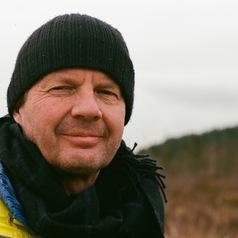
Nicholas Blomley
Professor of Human Geography, Simon Fraser University
Expert in legal geography
Less ![]()

Nicholas Bourne
Senior Lecturer, Applied Sport and Exercise Science, University of East London
I am Chartered Physiotherapist and Senior Lecturer in Applied Sport and Exercise Science at the University of East London where I teach on the Master’s degree in Strength and Conditioning.
I have been fortunate as a Physiotherapist and Performance Specialist to work with many elite athletes including Track and Field World Record holders and 18 National Football League (NFL) first round draft picks.
In recent years my focus has switched to applying strength and conditioning to a more senior population with a particular focus of reducing falls in the elderly.
Recent research includes:
Wehner-Hewson N, Watts P, Buscombe R, Bourne N, Hewson D. Racial and Ethnic Differences in Falls Among Older Adults: a Systematic Review and Meta-analysis. J Racial Ethn Health Disparities. 2022 Dec;9(6):2427-2440. doi: 10.1007/s40615-021-01179-1. Epub 2021 Nov 16. PMID: 34786654; PMCID: PMC9633486.
Qualifications:
Undergraduate—Liverpool University School of Physiotherapy (MCSP)
PhD—University of Texas at Austin
Honorary Physiotherapist at Southend University Trust
Postural Stability Instructor (PSI) with Later Life Training
Less ![]()

Nicholas Daly
Professor of Modern English and American Literature, University College Dublin
I came to UCD in 2005 as Chair of Modern English and American Literature, having taught for ten years at Trinity College Dublin. I have also taught at Wesleyan University, CT (Spring, 1994/5), and Dartmouth College (Fall 2003/4). Most of my work has been on nineteenth- and twentieth-century fiction and drama, though I have also written about early cinema and visual culture, and I have a strong interest in popular literature and culture. I would be happy to supervise graduate research in Victorian and twentieth-century popular literature in particular. I am or have been on the advisory boards of the Journal of Victorian Culture, Novel, Cusp, and the Irish University Review.
My most recent monograph, Ruritania: A Cultural History appeared from Oxford University Press in 2020; Oxford World's Classics published my linked edition of Anthony Hope's bestseller, The Prisoner of Zenda the same year. In 2023 I published a new edition of Arthur Conan Doyle's first Sherlock Holmes novel, A Study in Scarlet, for Oxford World's Classics. Current projects include a collaborative AHRC project with Aoife Monks on Dion Boucicault, and with Thomas Keymer the planning of a three-volume Cambridge History of London in literature.
Research:
Victorian and twentieth-century literature and culture, popular culture.
Recent Projects: Ruritania: A Cultural History, a book-length project on imaginary European territories, from The Prisoner of Zenda to The Princess Diaries; an edition of The Prisoner of Zenda. An essay on Victorian popular fiction for the Routledge Handbook of Victorian Literature.
Current Projects: an edition of Arthur Conan Doyle's novel, A Study in Scarlet, for Oxford World's Classics. One of the editors of the planned 3-volume Cambridge History of London in Literature.
Less ![]()
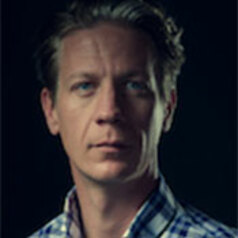
Nicholas De Dominic
Associate Professor of Writing, USC Dornsife College of Letters, Arts and Sciences
Nik De Dominic is the author of Goodbye Wolf (The Operating System '20) and Your Daily Horoscope (New Michigan Press '15). He holds an MFA in Creative Writing from the University of Alabama, where he was an Alabama Prison Arts + Education Fellow. His essays and poems have appeared in Guernica, Los Angeles Review, DIAGRAM, and elsewhere. De Dominic is a founding editor of the The Offending Adam and the Poetry Editor of the New Orleans Review. With Kate Levin, De Dominic co-founded and co-directs the Dornsife Prison Education Project.
Less ![]()
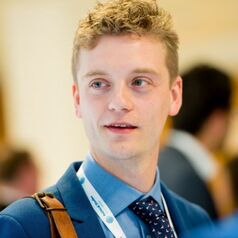
Nicholas Dickinson
Bingham Fellow in Constitutional Studies, University of Oxford
Dr Nick Dickinson is an expert in British and Commonwealth comparative politics, working primarily in the areas of parliamentary studies and public policy. My doctoral research focused on remuneration for political work, with an emphasis on the regulation of salaries and expenses of MPs in ‘Westminster’-style democracies. His current research programme as Bingham Fellow aims to produce an interdisciplinary approach to constitutional studies.
Less ![]()

Nicholas Dynon
Doctoral Candidate, Centre for Defence & Security Studies, Te Kunenga ki Pūrehuroa – Massey University
Nicholas holds a B.A. Hons and an M.A. in Asian Studies from the Australian National University and a Master of International Studies with Honours from the University of Sydney. He is a Certified Counter Terrorism Practitioner (CCTP) (Counter Terrorism Certification Board), Associate Protection Professional (APP) (ASIS International), and Security Risk Management Professional - Country (SRMP-C) (INSSA), and holds a Certificate of Approval in the classes of Security Consultant and Private Investigator (New Zealand Ministry of Justice). He is the recipient of the 2022 New Zealand Outstanding Security Performance Award (OSPA) for Lifetime Achievement.
Less ![]()
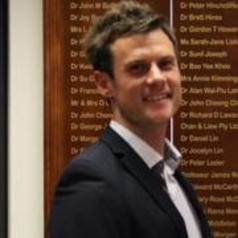
Nicholas Fuller
Research Fellow, Clinical Trials Development and Assessment, University of Sydney
As a researcher at the University of Sydney my work focuses on the causes, prevention and treatment of obesity and metabolic disorders. Having worked in the industry both corporate and academic for over 10 years, I have had the pleasure of investigating a broad range of topics including dietary & exercise programmes, complementary medicines, commercial weight loss programmes, medical devices, bariatric surgery, satiety hormones, and the economics of obesity. The importance of a holistic approach to the treatment of overweight and obesity is something I am particularly passionate about implementing and dispelling the myth that one solution can fit all.
Less ![]()
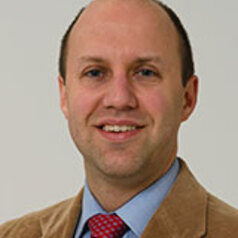
Nicholas Gelbar
Associate Research Professor, Department of Educational Psychology, University of Connecticut
Dr. Gelbar worked from 2014-2019 at the Autism Center at the Hospital for Special Care as a Psychologist, and as a researcher at the University of Connecticut University Center for Excellence in Developmental Disabilities. He is a Licensed Psychologist, National Certified School Psychologist, and a Board Certified Behavior Analyst at the Doctoral Level. He has training and expertise in Neurodevelopment Disabilities (including Autism Spectrum Disorder), Learning Disabilities, and Gifted/Talented individuals including those who also have disabilities (also referred to as Twice Exceptional).
Less ![]()
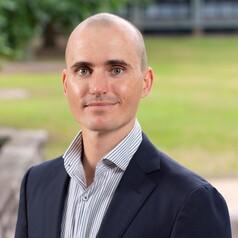
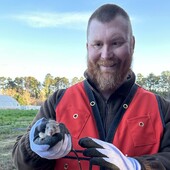
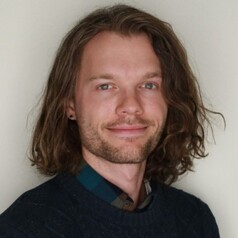
Nicholas Hunkins
Researcher in Data Science, University of Colorado Boulder
Nick Hunkins holds a master's degree in computer science, a bachelor's degree in mathematics, and has experience in both industry data-driven software development and academic research. Deeply concerned about the commodification of attention, particularly among young people, he believes in the importance of mindful engagement in the digital age.
Less ![]()
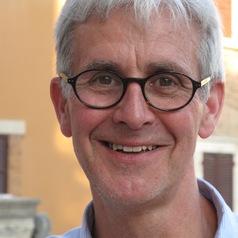
Nicholas Jose
Professor of English and Creative Writing, University of Adelaide
Nicholas Jose’s most recent novel is The Idealist (2023). He is adjunct professor with the Writing and Society Research Centre at Western Sydney University and emeritus professor of English and Creative Writing at the University of Adelaide. He was general editor of the Macquarie PEN Anthology of Australian Literature (2009).
BAHons ANU 1973
Cultural Counsellor, Australian Embassy Beijing 1987-90
Taught ANU (1978-86), University of Adelaide, Chair of Creative Writing, 2005-08, WSU, 2008-12
Visiting Harvard Chair of Australian Studies 2009-11
Professor of English and Creative Writing, School of Humanities, The University of Adelaide, 2012-
Adjunct Professor, Writing and Society Research Centre, Western Sydney University, 2012-
Author of 7 novels, 3 collections of short stories, a memoir and essays, mostly on Australian and Asian themes.
Less ![]()

Nicholas Kassebaum
Adjunct Professor in Health Metrics Sciences and Professor of Anesthesiology and Pain Medicine, University of Washington
Nicholas Kassebaum, MD, is an Adjunct Associate Professor in Health Metric Sciences at the Institute for Health Metrics and Evaluation (IHME) and an Associate Professor in the Department of Anesthesiology and Pain Medicine at University of Washington. He has been involved with the Global Burden of Disease (GBD) study and the Cost-Effectiveness research teams since 2010 and now leads the GBD research team on maternal, neonatal, and child health (MNCH). In this role, Dr. Kassebaum researches the burden of disease and effectiveness of interventions for improving survival and health of women, children, and adolescents. He has a special interest in women’s health and equity, pregnancy health, and multiple child health issues including congenital birth defects, hemoglobinopathies, prematurity and low birth weight, child growth failure, anemia, oral and dental health, and neonatal complications arising from infections, jaundice, and asphyxia.
Less ![]()
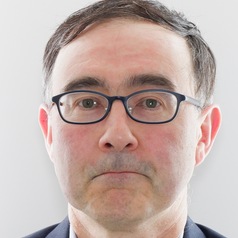
Nicholas Khoo
Associate Professor of International Politics, University of Otago
Nicholas Khoo (PhD, MPhil, Political Science, Columbia University; MA, International Relations, Johns Hopkins University; BA, Economics, University of California, Irvine) is Associate Professor in the Politics Programme, School of Social Sciences, University of Otago in New Zealand.
His research specialization includes: Chinese foreign policy, Asian security, great power politics, security studies, international relations theory, and Cold War history.
Less ![]()

Nicholas Kuzik
Postdoctoral Fellow, CHEO Research Institute, L’Université d’Ottawa/University of Ottawa
Dr. Nicholas (Corey) Kuzik is a post-doctoral fellow with the Healthy Active Living and Obesity (HALO) group under the supervision of Dr. Mark Tremblay. The goal of his research is to improve childhood development through 24-hour movement behaviours. This requires reaching a better understanding of movement behaviours through studying: measurement, analysis, associations with developmental outcomes, and associations with correlates/determinants. Dr. Kuzik completed his MSc and PhD on the topic of movement behaviours in early years children (0-5 years) under the supervision of Dr. Valerie Carson at the University of Alberta.
Less ![]()

Nicholas Leach
Postdoctoral Researcher, Climate Science, University of Oxford
I am a postdoctoral researcher at Oxford University, having recently completed my PhD as part of the Environmental Research Doctoral Training Partnership there. I reside in the Predictability of Weather and Climate research group, supervised by Antje Weisheimer and Myles Allen. My research explores the use of operational weather forecasting models within the field of extreme event attribution, with a particular focus on heat events and storms. This work touches on themes of numerical weather prediction, attribution of climate change, meteorological drivers of extreme weather and extreme value statistics.
I started out in climate change research during a summer research project (that I would later develop into my masters thesis) investigating a simple method for estimating the remaining global carbon budget. While this particular field is no longer my focus, I still remain involved, especially in the use and development of reduced complexity climate models.
I am also a climate scientist at Climate X, specialising in the quantifying the impact of climate change on storm systems globally. My role involves both assessing how to apply state-of-the art academic research to provide the detailed information on climate risk required by the financial industry, and coming up with novel ways that can improve upon more traditional ways of quantifying extreme weather risk from storm systems. I combine a variety of statistical methods and models with observational data and state-of-the-art physical climate and weather model simulations in my work, and am always interested in new approaches in this space, so if you’re an academic researching physical extreme weather risk and interested in working with industry, please get in touch!
Less ![]()
- Market Data

















